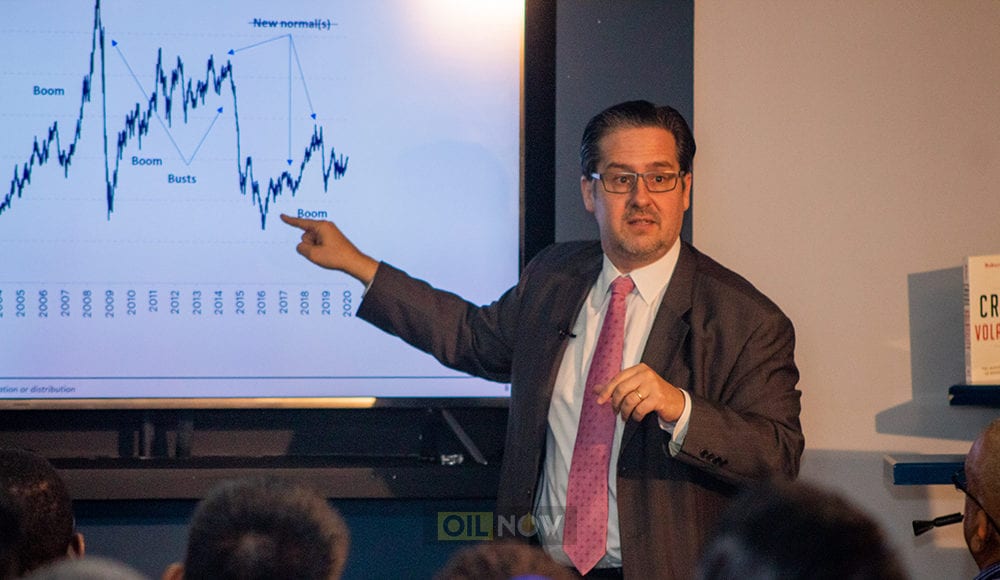The revenue Guyana receives from development of its multi-billion barrel oil resources offshore will be ultimately determined by price stability in the oil market which an expert in the industry says is largely dependent on there being a swing producer capable of preventing supply-demand imbalances.
Energy expert, author and consultant, Robert McNally has told OilNOW during a visit to Guyana that extreme price volatility is a key feature of the oil industry and can have a major impact on the ability of the government to plan ahead effectively on how it invest oil revenues.
“Oil as a commodity is prone to wild price swings because of the nature of supply and demand. On the demand side it’s a must-have commodity…and on the supply side; once you start that field, governments and operators don’t want to shut down, even if the price falls very low,” McNally said.
As such, he pointed out that when you have such a commodity where the supply and demand is not responsive to price, “you have to live with wild swings” which has always been a problem for the industry dating back to its inception in the mid-1800s in Titusville, Pennsylvania.
McNally, author of ‘Crude Volatility’, said this is why there has always been the need for a supply-control mechanism which has seen three swing producers emerged to impose price stability with varying degrees of success throughout the course of history. The first, John D. Rockefeller’s Standard Oil Company at the turn of the 20th century, imposed price stability indirectly by monopolizing refining and integrating with midstream pipeline and railroad companies. In later decades, the Texas Railroad Commission (TRC) and Saudi Arabia have led groups that employed upstream supply control and spare capacity retention to directly stabilize crude prices.
“From 1932 until about fifteen years ago, either the TRC or OPEC has attempted to stabilize prices. But the recent return of unusually large oil price swings reflects the absence of an effective swing producer,” he pointed out.
McNally said one of the most terrifying things to a country is when oil prices spike which sends up the cost for fuel, transportation and a range of commodities. “You could imagine if we are down the road and Guyana has become a big producer and the global oil price goes up and so do gasoline prices; people will be confused and may be angry. Leadership will need to have well-educated smart Guyanese who can explain why this is happening.”
In response to such a scenario, he says it would not be advisable to panic and begin implementing price controls, higher taxes and place blame on speculators, which could ultimately hurt industry and the economy.
He said these are all mistakes the United States and other countries have made and he hopes Guyana learns from it. “When the price of oil collapses, don’t panic, don’t rip up the contracts, don’t assume you are being fleeced. At the high price, don’t spend too much, don’t leverage, don’t borrow too heavily against oil if it goes to $150 a barrel and revenues are in the many millions. Don’t assume it will last forever.”
McNally is the founder of Washington D.C.-based Rapidan Energy Group and a former advisor in the George W. Bush administration.




